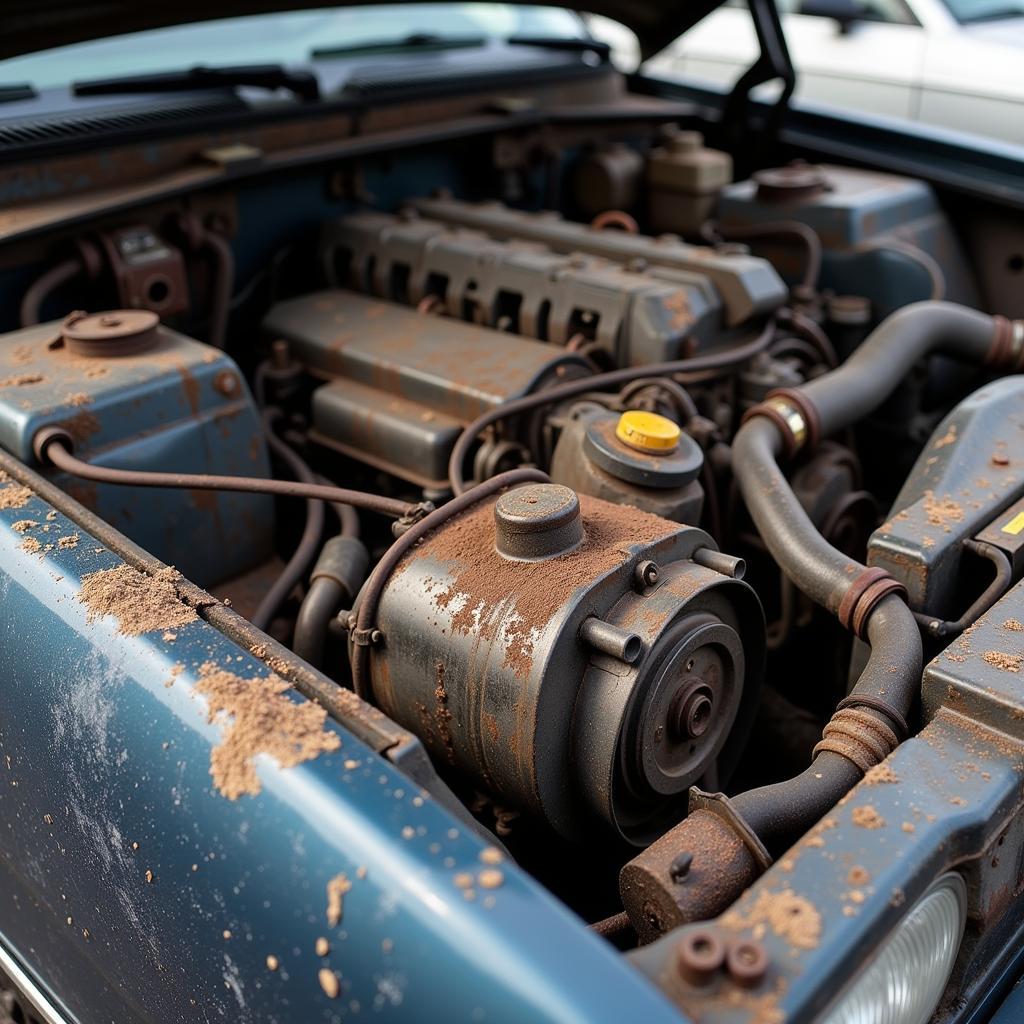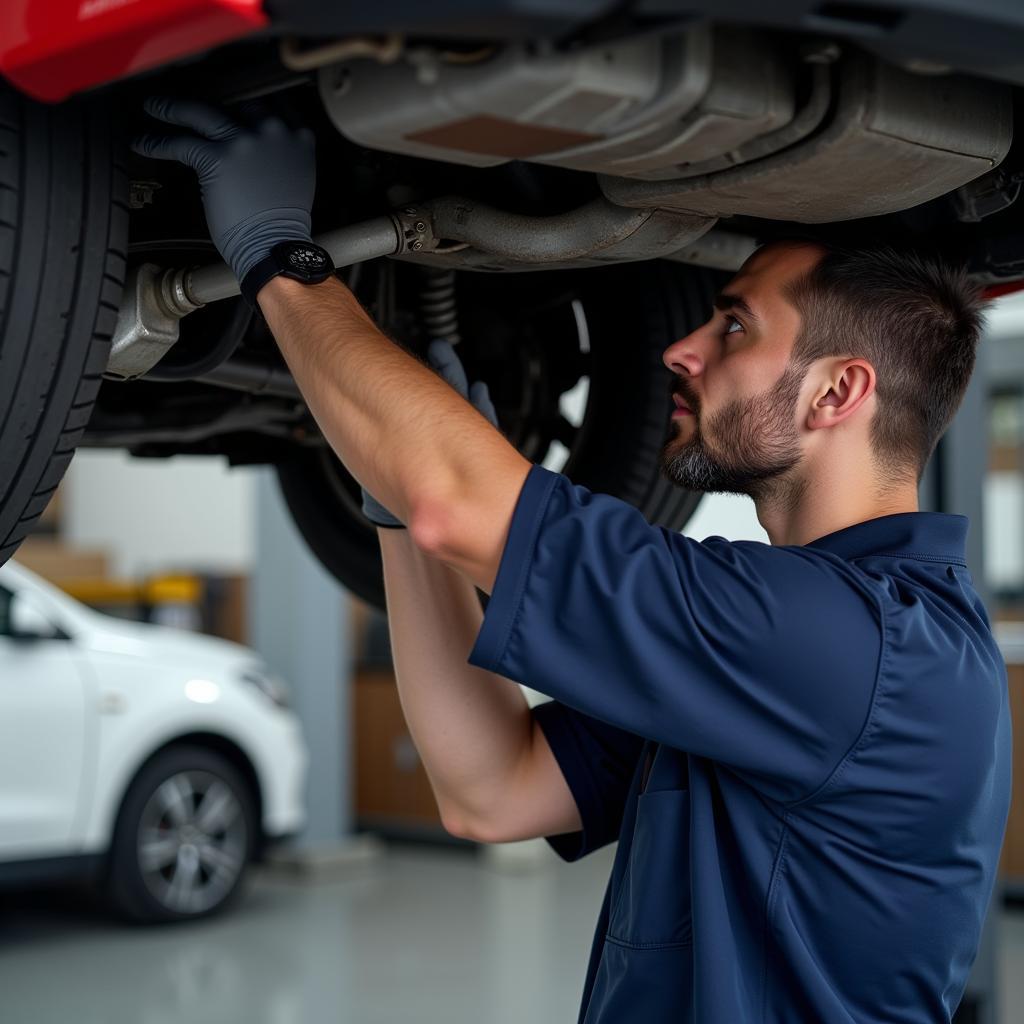Is Car Service a Waste of Money?
Many car owners find themselves wondering if regular car service is truly necessary or just an unnecessary expense. While it’s easy to think of skipping a service, especially when your car seems to be running smoothly, seeing car service as a waste of money can be a costly mistake in the long run. Let’s delve into why regular car service is crucial for the health of your vehicle, your wallet, and your safety.
The Hidden Costs of Neglecting Car Service
Postponing or neglecting regular car service might seem like a good way to save money initially, but it can lead to more significant expenses later.
Small Issues Become Major Repairs
 Neglected Car Engine
Neglected Car Engine
Regular service helps identify minor problems before they escalate into major headaches. A small oil leak, if left unattended, could result in catastrophic engine damage down the line. Addressing these issues early on is much lighter on your wallet than dealing with extensive repairs caused by neglect.
Reduced Fuel Efficiency Hits Your Wallet
A poorly maintained engine doesn’t perform at its best, leading to decreased fuel efficiency. Regular tune-ups, oil changes, and air filter replacements ensure your engine operates efficiently, saving you money on fuel costs over time.
Compromised Safety Puts You at Risk
Perhaps the most crucial reason why car service is not a waste of money is safety. Worn-out brakes, faulty lights, and worn tires are all accidents waiting to happen. Regular service addresses these critical safety components, ensuring your vehicle is safe for you and your passengers.
Debunking the “Car Service is Expensive” Myth
Many people avoid car service due to the perceived high costs. However, let’s break down why this perception isn’t always accurate.
Preventative Maintenance is Cheaper Than Major Repairs
Think of car service as an investment rather than an expense. Regular oil changes, fluid top-ups, and inspections cost significantly less than major repairs resulting from neglect.
Shop Around for Competitive Prices
Don’t settle for the first car wash service near me you find. Get quotes from different mechanics and dealerships to compare prices. Many service centers offer competitive packages and discounts, so it pays to do your research.
Consider DIY for Basic Maintenance
While some tasks require professional expertise, you can handle basic maintenance like checking tire pressure, refilling windshield washer fluid, and replacing air filters yourself. Numerous online resources and tutorials can guide you through these simple tasks, saving you money on labor costs.
Car Service: Peace of Mind and Longevity
Beyond the financial aspect, regular car service offers intangible benefits.
Drive with Confidence Knowing Your Car is in Top Shape
 Mechanic Inspecting Car
Mechanic Inspecting Car
Regular service provides peace of mind knowing that your vehicle is in optimal condition. This peace of mind is invaluable, especially for long journeys and daily commutes.
Extend the Lifespan of Your Vehicle
A well-maintained car is more likely to last longer. Regular service helps prevent premature wear and tear, increasing your car’s lifespan and potentially saving you the cost of having to replace your vehicle sooner.
Is Car Service a Waste of Money? The Verdict
The bottom line is that regular car service is not a waste of money but a worthwhile investment in your vehicle’s longevity, your safety, and your peace of mind. By adhering to the manufacturer’s recommended service schedule and addressing any issues promptly, you can avoid costly repairs, maintain your car’s value, and enjoy a safer and more reliable driving experience. So, the next time you wonder if skipping a service is a good idea, remember the hidden costs of neglect and prioritize the well-being of your vehicle.
FAQs About Car Service
1. How often should I service my car?
It’s best to follow the manufacturer’s recommended service intervals outlined in your owner’s manual. Typically, most cars require service every 6 months or 7,500 miles.
2. What is included in a basic car service?
A basic service usually includes an oil change, oil filter replacement, fluid top-ups, tire pressure check, and a visual inspection of brakes, belts, and hoses.
3. Can I service my car myself?
While you can handle basic tasks like checking fluids and tire pressure, it’s always recommended to have a qualified mechanic perform more complex procedures for safety and warranty purposes.
